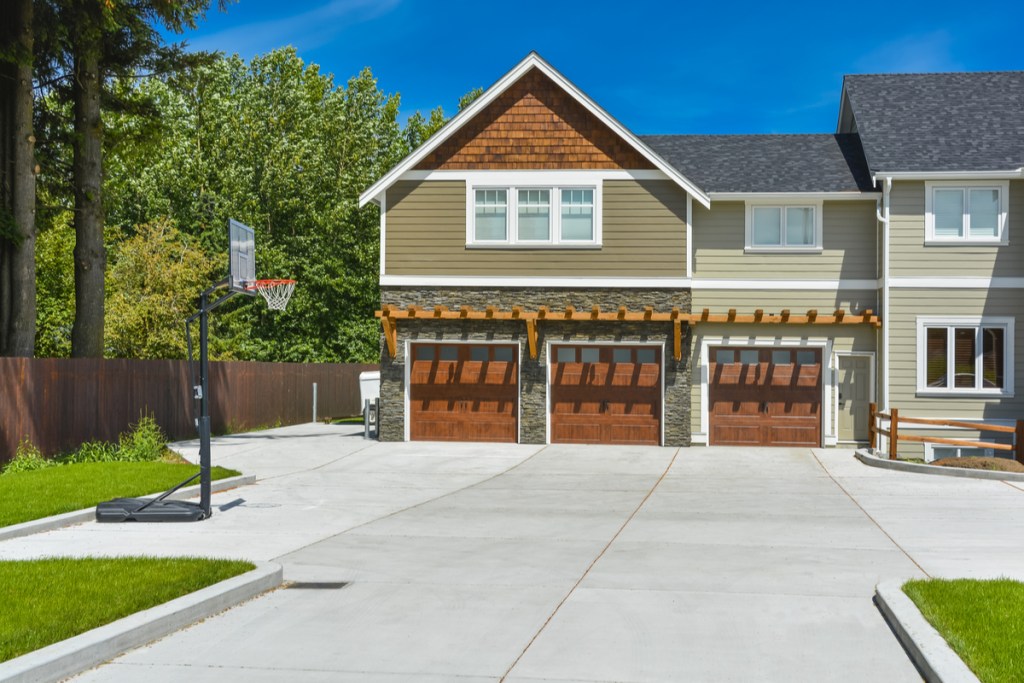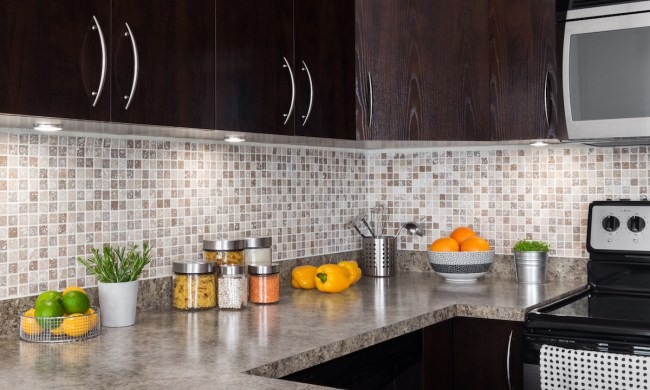Your outdoor space is a great area for relaxing, entertaining, and many other activities. Concrete is one of the most popular materials used in these spaces since it's extremely durable, affordable, and easy to maintain. Advances in the material's design have even made it popular in indoor features like concrete kitchen countertops and floors. When your outdoor concrete areas are in disrepair, though, or when they starting looking dirty and dingy, it can really impact your enjoyment while spending time outside. The good news is, concrete is easy to clean — with just a few steps, your concrete patio or driveway will look great and last for years.

How to clean concrete
The first round of cleaning your concrete space will get rid of minor dirt and mud stains or discolorations from months of harsh winter weather. This process will also help you prepare the material for removing any tougher stains.
Step 1: Remove all items from the concrete area, like potted plants, furniture, and outdoor toys.
Step 2: For smaller concrete areas, use a broom to sweep away loose debris and chunks of dirt. If your area is larger, it may be easier to use a leaf blower or industrial vacuum.
Step 3: Pull or treat any weeds poking through cracks and edges.
Step 4: Use a pressure washer to loosen and remove any stuck-on dirt or mud on the concrete surface.
Step 5: If any discolorations remain from mud or other substances, apply laundry detergent directly to the area and work it into the concrete stain using your nylon brush.
Step 6: Rinse away the soap residue with the pressure washer.
Step 7: If discolorations still persist, mix one cup of baking soda into a bucket of water.
Step 8: Pour the baking soda mixture onto the discolored areas and spread it around with a sponge mop.
Step 9: Let the mixture sit on the concrete for about 30 minutes and then scrub any deeply discolored sections with your nylon brush.
Step 10: Rinse away the baking soda solution with clean water from a garden hose or pressure washer.
How to remove oil and grease stains from concrete
Oil from parked vehicles or grease that dripped from your grill can create tough stains that typically won't come out with just laundry detergent or mild soap. These types of stains need to be lifted with a powdery material. The powder soaks up the oily substance and removes it from the porous concrete.
Step 1: Sprinkle sawdust or cat litter directly onto the grease or oil stain, and let it sit and soak up the stain. For smaller stains, it may need to sit for just 30 minutes, but for more widespread stains, let the sawdust or cat litter sit overnight.
Step 2: Sweep away the sawdust or litter and see if the stain remains. If it does, repeat the process again.
Step 3: If the oil or grease stain persists after two or three treatments, use a degreasing product. Follow the product's instructions for removing grease stains.

How to remove rust stains from concrete
Another tough stain to get out of concrete surfaces is rust. If an old piece of metal furniture has been sitting on the concrete over the cold and wet seasons, it's possible for the rust to run off of the furniture and be absorbed into the concrete below. The good news is, there are a couple of ways to remove rust stains from your concrete space.
Step 1: Pour vinegar onto the rust stain, and let it soak into the concrete for at least 20 minutes.
Step 2: Use your nylon brush to scrub the vinegar-soaked stain.
Step 3: Rinse the area with a garden hose or your pressure washer, and see if the rust stain persists.
Step 4: If the stain remains after the vinegar treatment, use a rust-removing product that's safe for concrete. Treat the stain by following the instructions on the label.
What is the best chemical to clean concrete?
Wondering if you can you deep clean concrete? If you've tried pressure washing and spot treatments and those stubborn stains simply won't go away, you don't necessarily need to call in the pros just yet. You can save some cash by purchasing a heavy-duty chemical concrete cleaner like muriatic acid or trisodium phosphate (TSP). These chemicals are extremely strong and should be handled with care.
- Wear appropriate protective gear, like acid-resistant gloves, safety goggles, a respirator mask, and thick, protective clothing.
- Be sure to wear long sleeves and pants to prevent the chemicals from touching your skin.
Concrete in your outdoor space is strong, durable, and long-lasting, but it can easily stain over time from rust, oil, or even mud. Keep your patio, driveway, or other concrete features looking sparkling clean and brand new by cleaning them at least once a year with these effective methods.




